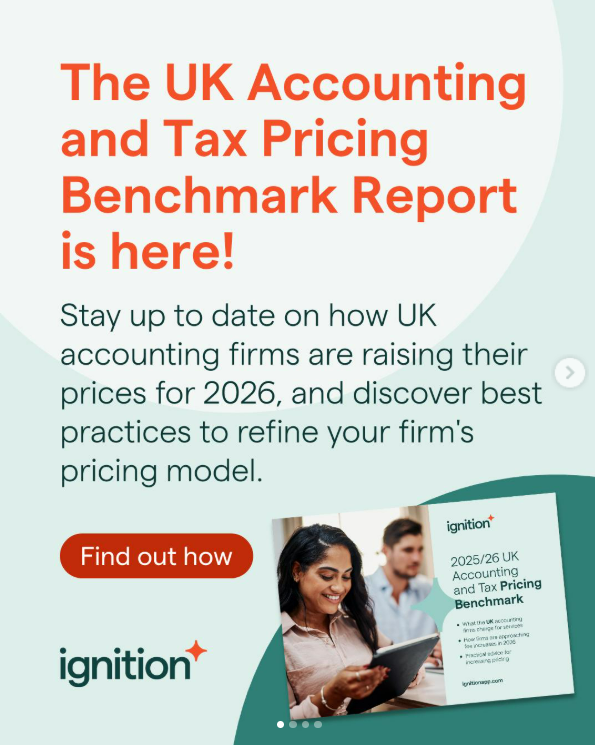Making a website involves more than just posting your thoughts online; it also entails designing an area that speaks about your company, identity, or brand. A website is crucial in the current era, whether for running a blog, a business, or just displaying your portfolio. Fortunately, with so many user-friendly website builders accessible in 2024, creating one has never been simpler. The best website builders are broken down below, along with their advantages.
Why You Should Have a Website
In today’s digitally connected world, a website is a necessity. Whether you are an individual or a company, having a website builds credibility and opens the door to a global audience. Research has indicated that 81% of consumers conduct some form of research online before making a final purchasing decision, leaving it out in the cold if you do not have a website.
Basic infrastructure of a face on the Internet, if you launch your blog, portfolio, or e-commerce store, it will give you the means to broadcast your expertise, products, or services with a level of control over the narrative around your brand. Having democratized web development, some of the best website builders like Squarespace, Shopify, and Wix now make it accessible, even for those with little to no coding experience to build professional and functional sites. With increased competition in almost all industries, a website is a strategic asset that distinguishes you and builds long-term credibility.

Key Features to Consider
Selecting the right website platform can be overwhelming. Instead, ensure that your preferred website’s features align with your objectives. According to a Clutch survey conducted in 2018, 94% of website users point to web design as a reason why they mistrust or refuse to use a website. Therefore, flexibility in design and user experience is crucial.

If you need great customization flexibility, look for other systems like Webflow or WordPress, which will provide you with sound advanced design elements with a lot of flexibility. If ease of use is what you’re after, consider some platforms like GoDaddy or Weebly, which are highly regarded for delivering user-friendly drag-and-drop editors. Duda and Canva, for example, bring an intuitive interface with enough customization that even users with little technical prowess can have control over their design.
Shopify is gold for e-commerce sites; it excels as an attractive, all-in-one set of tools for online stores. On the other hand, Squarespace wins hands down in beautiful templates for creating great portfolios and personal branding. Among the factors to consider in evaluating platforms are their SEO tools, analytics, scalability, and mobile responsiveness, which will directly affect your website’s performance and growth potential.
Free or Paid Builders: Which is Better?
The free and paid website builders depend on your short-term and long-term needs. Free builders such as Wix, WordPress.com, and Webnode are ideal for small projects, hobbyists, or people just trying out ideas.
It is worth the money spent on the paid plans for professional and business use. HubSpot recently observed the statistics of different websites and discovered that companies with professional-looking websites have conversion rates 30% higher. Paid plans include free custom domains, more storage, e-commerce integration, and advanced SEO tools, making it suitable for scales. Premium plans also arrive with better security and faster loading speeds, which are important in ensuring smooth usage. In the long run, the costs of upgrading can be duly compensated by a better brand perception and trust of the customers.
Why Design Matters: The Importance of UX and UI in Website Success

Design is not just about aesthetics; it is about user experience and how seamlessly a website works. A well-designed website is a critical factor in user retention and conversion. Research has proven that 38% of visitors will only engage with a website if the layout is attractive and easy to navigate. For example, a good-looking, customizable template on websites such as Squarespace or Wix makes such platforms work well for non-designers to create polished, professional-looking sites without necessarily having a full-time designer.
All the things listed above influence how your brand is perceived by its users. Cluttered, outdated, or confusing interfaces will dissolve the trust and attract plenty of bounces. Intuitive, mobile-friendly designs keep visitors engaged and guide them towards desired actions, be it a purchase or subscription to a newsletter. Think of investing in a platform that focuses on best practices about UX/UI and provides customizable templates designed to fit perfectly with your brand’s identity.
How Much Does It Cost?
Website costs vary greatly depending on your specific choice of platform and needs. The budget option, for instance, in Hostinger: hosting plans cost as low as $2.49 a month with the Basic plan good for small individual businesses. E-commerce websites, at their Shopify starting point, range as high as $39 per month, bringing total inventory management and payment processing to your customer engagement abilities. 60% of the small-sized business enterprises spent between $1,000 and $7,000 on-site building and hosting; most other business firms spent a significantly greater amount depending on the complexity and scale of the site, according to a survey conducted by GoodFirms.
Questions to ask yourself before choosing a platform:
- What is my budget for hosting, designing, and maintaining my website?
- Are there hidden charges, for example, transaction fees or premium features on the platform I am considering?
Picking the Best Website Builder for Your Needs
It depends on the purpose for which you want to have your site. Increasingly, e-commerce businesses opt for Shopify because of its features including in-built payment processing, inventory management, and even customer relationship management tools. According to SellersCommerce, 2.71 billion people shopped online in 2024, which calls for a good web presence. Creatives wishing to share portfolios or blogs have clean design options with Squarespace and Wix, without having to be technical experts. It’s worth noting that research by Clutch shows that 83% of consumers will engage with a website if the content is aesthetically pleasing or the layout is appealing.

Do You Need a Developer?
Hiring a web developer may be customized, but hiring a professional is costly, for many small businesses. Advanced customization tools exist in platforms like Webflow and GoDaddy, making it easier for users to create complex websites without writing code. This saves a lot of money and gives users much control over how their website appears and what it does.
SEO: Why It Matters
The optimization of a website in search engines is something that needs to be taken very seriously and SEO is an essential tool for this. The integrated SEO tools of Wix, Webflow, and Squarespace sites make optimizing better search rankings more accessible. According to Ahrefs, 90.63% of pages receive no Google organic traffic, so one needs to have enough SEO strategies. An average ROI of 748% has been reported for businesses that have invested in SEO; such figures have been reported by Sagapixel, and speaking from those numbers, it speaks volumes about the relevance of carrying out SEO for organic traffic and related sales.
Keeping Your Site Secure
Website security is a must, especially in e-commerce sites that tend to have some sensitive information relating to customers. Builders such as GoDaddy and Hostinger will give you basic security settings like the availability of SSL certificates and firewalls. Ponemon Institute indicated that 64% of organizations had experienced some form of web-based attacks. This is an indicator that strengthened security measures are needed. A secure website protects your customer’s information and enhances your reputation in the market.

Creating an Online Store
If we are to sell products online, platforms like Shopify and Wix are the best website builders for building ecommerce stores. They offer everything you need to get your store up and running, including tools for managing inventory, processing payments, and handling shipping.
Switching Website Builders
Sometimes, the platform you start with isn’t the best-fit long-term. If that’s the case, builders like Weebly and Webnode make it easy to transfer your site to their platform without losing content or data, allowing you to upgrade your website with minimal hassle.
Designing for Usability
Good web design isn’t just about looks—it’s about creating a website that’s easy for people to navigate. Platforms like Duda and Wix make it simple to design user-friendly, responsive sites that work well across all devices, ensuring your visitors have a smooth experience.
Common Mistakes to Avoid
One common mistake people make when building their site is overloading it with unnecessary elements. Builders like Canva and Squarespace make it easy to maintain a clean, minimal layout that keeps your visitors focused on what matters most.
Why Mobile Responsiveness Matters

With more people accessing the web on their phones than ever, your site has to be mobile-friendly. Platforms like Webflow and Wix automatically optimize your site for mobile, so you don’t have to worry about designing separate layouts for different devices.
Site Performance and Speed
A slow website can cost you visitors and rankings. Hostinger and GoDaddy are known for their fast and reliable hosting, ensuring your site’s efficient and quick loading, regardless of where your visitors are coming from.
Ongoing Maintenance

Once your site is live, maintaining it is key. Whether making updates or keeping your security features current, platforms like Squarespace and Weebly offer tools to help you manage content and make updates without too much hassle.
Do Website Builders Include Hosting?
Most website builders like Wix and Webnode offer hosting as part of their package, so you don’t need to worry about finding a separate provider. Others like Webflow and GoDaddy may give you more flexibility, letting you choose your hosting plan based on your needs.
Extra Tools and Plugins
If you want to add more functionality to your site, platforms like Wix, Weebly, and Shopify offer a variety of plugins and add-ons. This includes SEO tools to e-commerce extensions, that can help enhance your website and its capabilities.
Building a Successful Website
Launching your website is just the beginning. Choosing a platform that aligns with your goals, like Squarespace for creatives or Shopify for e-commerce, is crucial for long-term success. Keep your design simple, focus on usability, and maintain your site regularly for the best results.
Importance of Customer Support
Customer support is the backbone of building and maintaining a website. Be able to look for sites offering support all hours of the day, across multiple channels (such as live chat, email, and phone), and have an excellent knowledge base. For this reason, reports from Zendesk show that 89% of customers consider a firm’s customer service while deciding to purchase. Available support can help solve technical problems, making overall user satisfaction increase in these initial setup and troubleshooting phases.
How Do the Best Website Builders Handle SEO?
Even newer website builders, such as Weebly and Squarespace, will often have built-in SEO tools that help make your site search engine-friendly. Some other important features of website builders are that you can edit meta tags, include alt text for images, and have structured URLs. According to imFROZA, 93% of all online experiences begin with a search engine: that says it is all about the need for powerful practices in SEO. Analysis may also be done with analytics tools to track the performance of SEO and alter changes accordingly based on data.
What Security Features Should You Look For?

The first feature you should look for is safety, as your website will store some sensitive data. Next, consider a website builder’s features, like:
- SSL Certificate: This SSL certificate encrypts data between your website and visitors. When information is encrypted, it triggers a padlock icon on those websites. This is an otherwise great security feature, but a major search engine optimization turn-on since Google uses SSL as a ranking factor, too.
- Firewall Protection: Web application firewall (WAF) is like a wall protecting you from any threats- they monitor the flow of traffic, block malicious activities, for instance, SQL injection. According to researchers, the companies that take security measures seriously get $1.4 million saved per incident by those whose weak security does not yield fruits.
- Regular Backups: Regular backups ensure that your site can quickly be restored in case of data loss or breaches. Companies with regular strategies for backing up their data recover disruptions faster, reducing downtime and loss of revenue.
What Are the Pros and Cons of Using a Website Builder Versus a Custom-Built Website?
Best Website builders offer a user-friendly interface, lower upfront costs, and faster setup times, making them the darling of newbies and small businesses. A study by W3Techs of websites showed that around 70% use CMS platforms; thus, the trend is toward usable solutions. Nevertheless, custom-built sites allow for greater flexibility and control, such as in design and functionality. When visitors are expected to be extremely heavy or specific functionalities are required, switching to custom development may be worth it despite the added expenses and extended timelines.
Best Website Builders of 2024
1. Squarespace

Squarespace is known for its beautifully designed templates and intuitive drag-and-drop interface, making it ideal for creative professionals, bloggers, and small businesses. Its built-in tools for SEO, e-commerce, and analytics, provide a comprehensive platform for building visually stunning and functional websites.
Best For: Creative portfolios, blogs, small businesses.
Key Features: High-quality templates, integrated e-commerce, mobile optimization, and built-in SEO tools.
Pros and Cons:
- Pros: Beautiful templates, all in one, strong e-commerce functionality, easy-to-use interface, 24/7 customer support.
- Cons: Pricier pricing plans, fewer plug-ins, customization limitations.
Price Range: Approximately $16/month billed monthly to $52/month billed annually.
Why Should We Choose It?
If your primary goal is to create a beautiful-looking website with minimal technical know-how, then Squarespace is an excellent choice.
2. Shopify

Shopify is the leading platform for e-commerce websites, offering various tools to help businesses sell products online. From inventory management to payment gateways, Shopify handles all aspects of setting up and running an online store.
Best For: E-commerce businesses.
Key Features: Payment gateway integration, inventory management, sales analytics, customizable themes, and app store for additional tools.
Pros and Cons:
- Pros: Ease of use, extensive app ecosystem, multi-channel selling, secure and scalable, international and domestic reach, built-in marketing tools.
- Cons: Costly add-ons, transaction fees, limited design flexibility, high pricing for advanced plans.
Price Range: $29/month to $299/month billed annually
Why Should We Choose It?
Shopify is an excellent choice for businesses that prioritize scalability, multi-channel selling, and advanced e-commerce features. If you’re looking to build a professional online store with room to grow, Shopify should be at the top of your list.
3. Wix

Wix is known to be one of the most popular website builders thanks to its versatility, ease of use, and wide range of design customization options. It features both a drag-and-drop editor and an AI-powered website builder (Wix ADI) making it suitable for both beginners and advanced users.
Best For: All-around use, beginners, small businesses.
Key Features: Includes a drag-and-drop editor, customizable templates, e-commerce features, SEO tools, and an app marketplace for added functionality.
Pros and Cons:
- Pros: User-friendly interface, templates variety, advanced customization, all-in-one solution, free plan available.
- Cons: Pricing can be expensive, less flexibility in switching templates, limited e-commerce features, slower speed and performance sometimes.
Price Range: $17/month to $159/month billed monthly
Why Should We Choose It?
Wix is an excellent choice for individuals, small businesses, and creatives who need a user-friendly platform to build a visually appealing website quickly and affordably.
4. Webflow

Webflow is a powerful website builder that combines the design flexibility of manual coding with a visual interface. It’s perfect for designers and developers who want more control over their site’s design and interactions without writing code. Webflow also offers hosting solutions.
Best For: Designers, developers, and businesses wanting high customization.
Key Features: Include fully customizable layouts, a CMS (Content Management System), e-commerce capabilities, advanced animations, and interactions.
Pros and Cons:
- Pros: Design flexibility, no code needed, customizable templates, responsive design, hosting and CMS integrated.
- Cons: Steeper learning curve, limited integrations, relatively high pricing.
Price Range: Free to custom.
Why Should We Choose It?
Webflow is a great choice for users with design or development experience who need full control over their website’s design, structure, and functionality.
5. Hostinger

Hostinger is primarily known for its affordable and reliable web hosting services and also provides a solid website builder. It’s an excellent choice for beginners and those who need a budget-friendly option to get online quickly.
Best For: Budget-friendly hosting and website building.
Key Features: Drag-and-drop website builder, free domain (with plans), affordable pricing, fast hosting speeds, and security features.
Pros and Cons:
- Pros: Affordable pricing, fast performance, user-friendly hPanel, global data centers, free add-ons.
- Cons: No daily backups on basic plans, limited entry-level plan, paid add-ons.
Price Range: $2.99/month to $9.99/month billed annually.
Why Should We Choose It?
Hostinger is a great choice for those looking for an affordable, reliable, and user-friendly hosting solution. It’s particularly well-suited for beginners, small businesses, and individuals who want to set up a website without breaking the bank.
6. GoDaddy

GoDaddy offers an easy-to-use website builder with integrated hosting, domain services, and online marketing tools. It’s a popular choice for small businesses due to its simplicity and range of services such as email marketing and online appointments.
Best For: Small businesses, entrepreneurs, and those seeking all-in-one solutions.
Key Features: It offers a website builder, domain registration, hosting services, online store tools, marketing, and SEO tools.
Pros and Cons:
- Pros: Vast selection of domain registration, wide range of services, 24/7 customer support, user-friendly interface.
- Cons: Comparatively higher pricing structure, upselling, limited backups.
Price Range: $9.99/month to $20.99/month billed annually.
Why Should We Choose It?
GoDaddy is a good option if you want ease of using a reliable platform with such a variety of services such as domain registration, hosting, and website building.
7. Duda

Duda is a user-friendly website builder, mainly suited for agencies and freelancers managing multiple client sites. Its responsive designs and collaboration tools make it ideal for professionals to deliver high-quality websites.
Best For: Agencies, freelancers, and businesses that manage multiple websites.
Key Features: Collaboration tools, mobile-responsive design, white-label solutions for agencies, and site personalization.
Pros and Cons:
- Pros: User-friendly interface, responsive templates, collaboration tools, white-labelling options, SEO tools.
- Cons: Comparatively expensive pricing, limited integrations, steeper learning curve, limited templates, not as customizable as open-source platforms.
Price Range: Approximately $19/month to $149/month billed annually.
Why Should We Choose It?
Duda is an excellent website builder, particularly suited for businesses, agencies, and freelancers seeking a professional platform with a range of advanced features.
8. Canva

Canva is primarily a graphic design tool, which offers a website builder as part of its suite. Canva’s website builder is great for creating simple one-page websites, landing pages, or portfolios without needing advanced web development skills.
Best For: Simple portfolios, one-page websites, personal websites.
Key Features: Drag-and-drop editor, custom branding, pre-designed templates, seamless integration with Canva’s design tools.
Pros and Cons:
- Pros: User-friendly, extensive library, customizable designs, collaboration features, brand kit, affordable plans, all-in-one tool.
- Cons: Limited customization, dependence on internet, cost for premium features, basic animations, ownership restrictions, cumbersome file organization.
Price Range: One has to purchase the Canva Pro plan as Canva does not have a Website builder plan. Canva Pro plan starts from $119.99/person/year to $149.99/five people/year billed annually.
Why Should We Choose It?
Canva is a powerful tool with a friendly and non-intimidating user interface, ideal for beginners, small businesses, content creators, and marketers.
9. Weebly

Weebly is known for its simplicity and user-friendly interface, making it one of the easiest website builders for beginners. Owned by Square, Weebly is best suited for small business websites and online stores due to its e-commerce features.
Best For: Small businesses, personal websites, online stores.
Key Features: Simple drag-and-drop builder, e-commerce integration, SEO tools, and affordable pricing.
Pros and Cons:
- Pros: User-friendly interface, affordable plans, responsive designs, built-in e-commerce tools, SEO optimization.
- Cons: Limited design flexibility, less advanced features, expensive for scaling, no full control.
Price Range: $0/month to $26/month annually (approx.).
Why Should We Choose It?
The budget-friendly, beginner-friendly Weebly offers a combination of all the essential tools for creating professional websites or online stores. Suitable for beginners who want ease of use combined with affordability over advanced features in designing.
10. Webnode

Webnode offers an easy-to-use platform for building both personal and business websites. With a global user base, it stands out for its multilingual support, allowing users to create websites in multiple languages.
Best For: Multilingual websites, small businesses, personal use.
Key Features: Multilingual support, mobile-friendly templates, SEO tools, and e-commerce capabilities.
Pros and Cons:
- Pros: User-friendly interface, affordable plans, responsive designs, e-commerce tools, SEO tools.
- Cons: Limited customization, less advanced features, scalability issues, no full access to code.
Price Range: $4.50/month to $22.99/month billed annually.
Why Should We Choose It?
Webnode is great for personal, small business, or any simple, affordable website builder. It’s very user-friendly, supports multilingual capabilities, and has responsive templates for creating professional-looking websites without technical knowledge.
Conclusion
A key component of a business’s success in today’s era is building its presence on the internet. And for this choosing the right website builder is of utmost importance. One might think, why do we even need website builders? But we must keep in mind that not everybody knows the technological nitty-gritties involved in building a website and even those who know, might face problems in creating and maintaining it.
Thus, having a website builder helps in enhancing the business’s presence, credibility and being up-to-date with current trends in the business world. Especially with the plethora of website builders available nowadays, it is hard to choose the best website builder for one’s business. So, we have compiled the best website builders of 2024, to help you a little bit in your journey towards success.
Choose the one perfect for your needs and take a step towards creating an amazing online presence and experience the growth. For more such insights follow our official website and social handles.
Let us know your thoughts in the comment section – We would love to hear from you!
Frequently Asked Questions (FAQs)
1.Why do you need a Website?
In today’s digitally connected world, a website is a necessity. Whether you are an individual or a company, having a website builds credibility and opens the door to a global audience.
2. What is a Website Builder?
A Website Builder is a kind of tool which helps you to build websites with zero coding knowledge and design those according to your needs.
3. Why do you need a Website Builder?
Website builders offer a user-friendly interface, lower upfront costs, and faster setup times, making them the darling of newbies and small businesses as opposed to custom build websites which require some knowledge about building websites.
4. Do Website Builders Include Hosting?
Most website builders like Wix and Webnode offer hosting as part of their package, so you don’t need to worry about finding a separate provider. Others like Webflow and GoDaddy may give you more flexibility, letting you choose your hosting plan based on your needs.
5. Do Website Builders provide security?
Yes, Website Builders provide security to keep your website safe and secure from potential threats. Website Builders such as GoDaddy and Hostinger will give you basic security settings like the availability of SSL certificates and firewalls. Having a secure website protects your customer’s information and enhances your reputation in the market.








